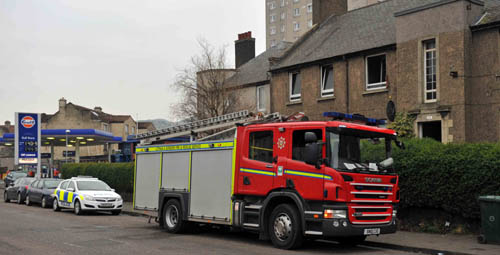SCOTLAND’S Chief Fire Inspector has called for firefighters to be allowed to treat members of the public having heart attacks.
At present emergency calls for heart attacks are sent directly to the Scottish Ambulance Service.
But Steve Torrie, Chief Inspector of the Scottish Fire and Rescue Service, has said that firefighters trained in resuscitation could often arrive on scene faster, saving lives.
In a meeting with MSPs last week, Torrie said that the fire service was more than capable of helping out in medical emergency situations.
He said: “We think that the Scottish Fire and Rescue Service could make a very big difference. Nine times out of ten we will get there first.”

In Scotland the survival rate of those suffering a heart attack in the street is currently 4%, among the worst in Europe.
In the American city of Seattle an incredible 40% of people who suffer a heart attack in public are saved, partly thanks to fire teams responding to such incidents.
Torrie said: “Thinking about the geography of Scotland – thinking about someone falling down in the street anywhere – we can appreciate that ambulances are highly unlikely to be around.
“Many thousands of firefighters are around. They are trained and they can be trained further.
“They have hundreds of defibrillator devices between them and they could contribute in a big way. The process is straightforward but it could make a big difference to Scotland’s health.”
He noted that they were currently consulting the fire service before rolling out the initiative across the country.
The news follows an announcement from ministers that they are aiming to save 1000 lives from out-of-hospital cardiac arrests by 2020.
Despite his optimism, Torrie warned that the initiative could struggle to take off if resources are not properly allocated.
He said: “If the cardiac arrest service is going to be rolled out across the country, it will have a significant effect on budgets. It is clear that the resourcing issue needs to be looked at.”
But critics have warned that fire crews could be called out to incidents which they are not trained to deal with
Stephen Thomson, of the Fire Brigades Union, said: “I was given the anecdotal example of a crew that was turned out for a call that they eventually realised was not for a cardiac arrest but for a diabetic coma.
“Firefighters are not trained for that and do not have the expertise to deal with it, and the crew that I am talking about was left with having to deal with a casualty while being surrounded by their family.”